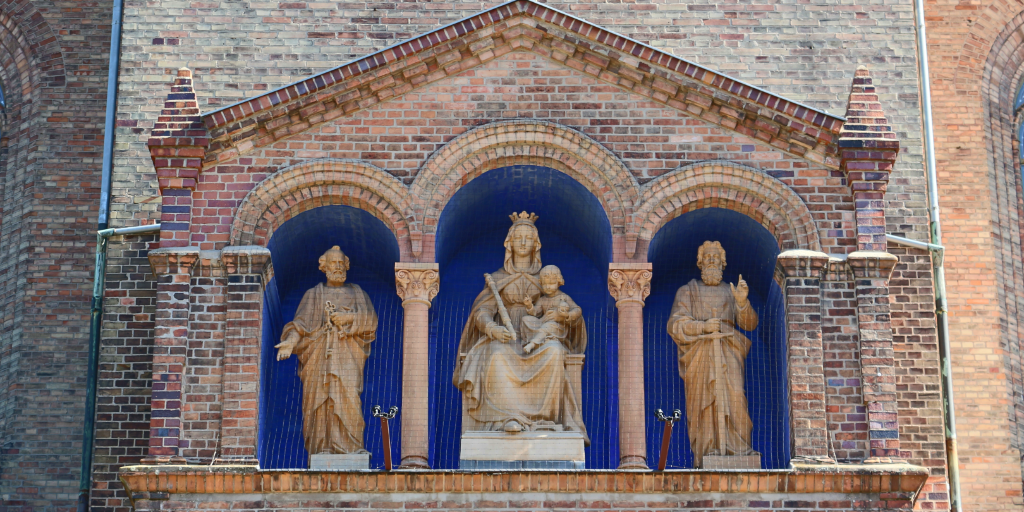
As we remember Saints Peter and Paul this week, Rosemary Bogdan considers how God uses whomever he chooses, even people who might seem unlikely choices.
This week we will celebrate the Solemnity of Saints Peter and Paul. Are there any two saints more influential in the Church? Flanking the entrance to Saint Peter’s Basilica there are two enormous statues of these two icons of the Church. Together they are the patron saints of Rome and the pillars of Catholicism.
Saint Peter, the humble fisherman, became the rock on which the Lord Jesus built his Church. Saint Paul is described by Scott Hahn as “the most influential writer in human history.” Neither Saint Peter nor Saint Paul has his own feast day, although Saint Peter is also remembered on, February 22, the Feast of the Chair of Saint Peter, and Saint Paul is remembered on January 25, the Feast of the Conversion of Saint Paul. On the Solemnity we celebrate this Thursday, June 29, we remember both of them. They were martyred in Rome by Emperor Nero somewhere between 64 and 68 AD. Paul was beheaded and Peter was crucified upside down, at his request tradition tells us, because he did not believe himself worthy to die as Jesus did.
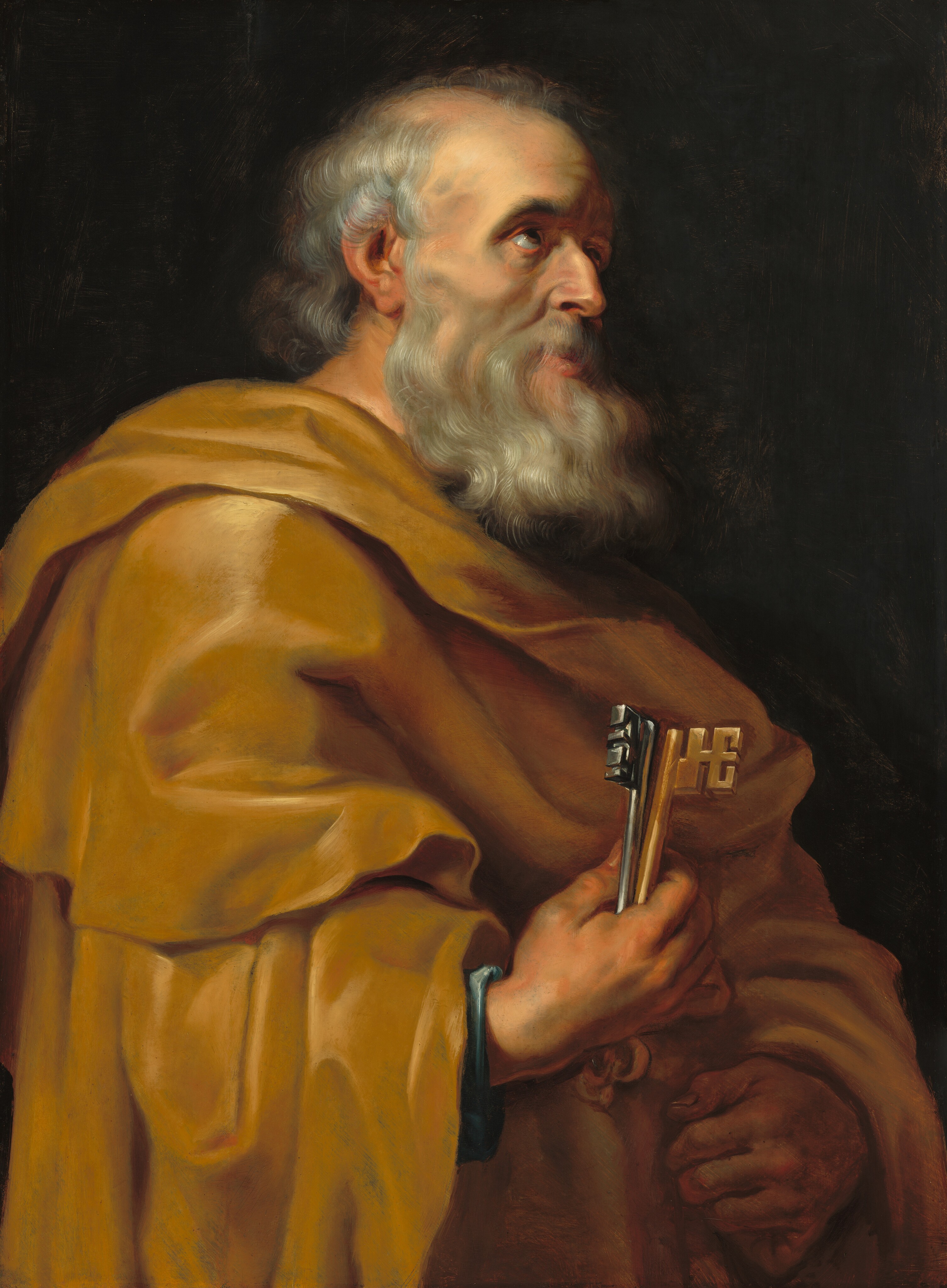
Remember Jesus had predicted that all the disciples would have their faith shaken.
Peter said to him in reply, "Though all may have their faith in you shaken, mine will never be." Jesus said to him, "Amen, I say to you, this very night before the cock crows, you will deny me three times." Peter said to him, "Even though I should have to die with you, I will not deny you.” (Matthew 26:33-35)
Well, we know what happens less than 24 hours later. But who can blame Peter, right? Of course, he was terrified, no doubt having seen people crucified by the Romans. So terrified that the thought of this very recent prediction of Jesus did not even cross his mind—until the cock crowed. Could the depth of Peter’s regret, in addition to the words of actual denial, include a realization that he had been excessively confident, maybe even prideful, and that it was that very mindset that led him to claim an allegiance to Jesus that fear could so easily dissipate.
Yes, Peter would deny Jesus. Three times and without hesitation. But Peter deeply loved Jesus and knew he was full of mercy. He did mean the words he said when he claimed he would never deny Jesus. Perhaps he simply underestimated his own weakness when confronted with great fear. Let’s not forget that the other apostles had all promised Jesus the same. But they had all fled. At least Peter was in the courtyard. We are all weak. Jesus knows how weak we are.
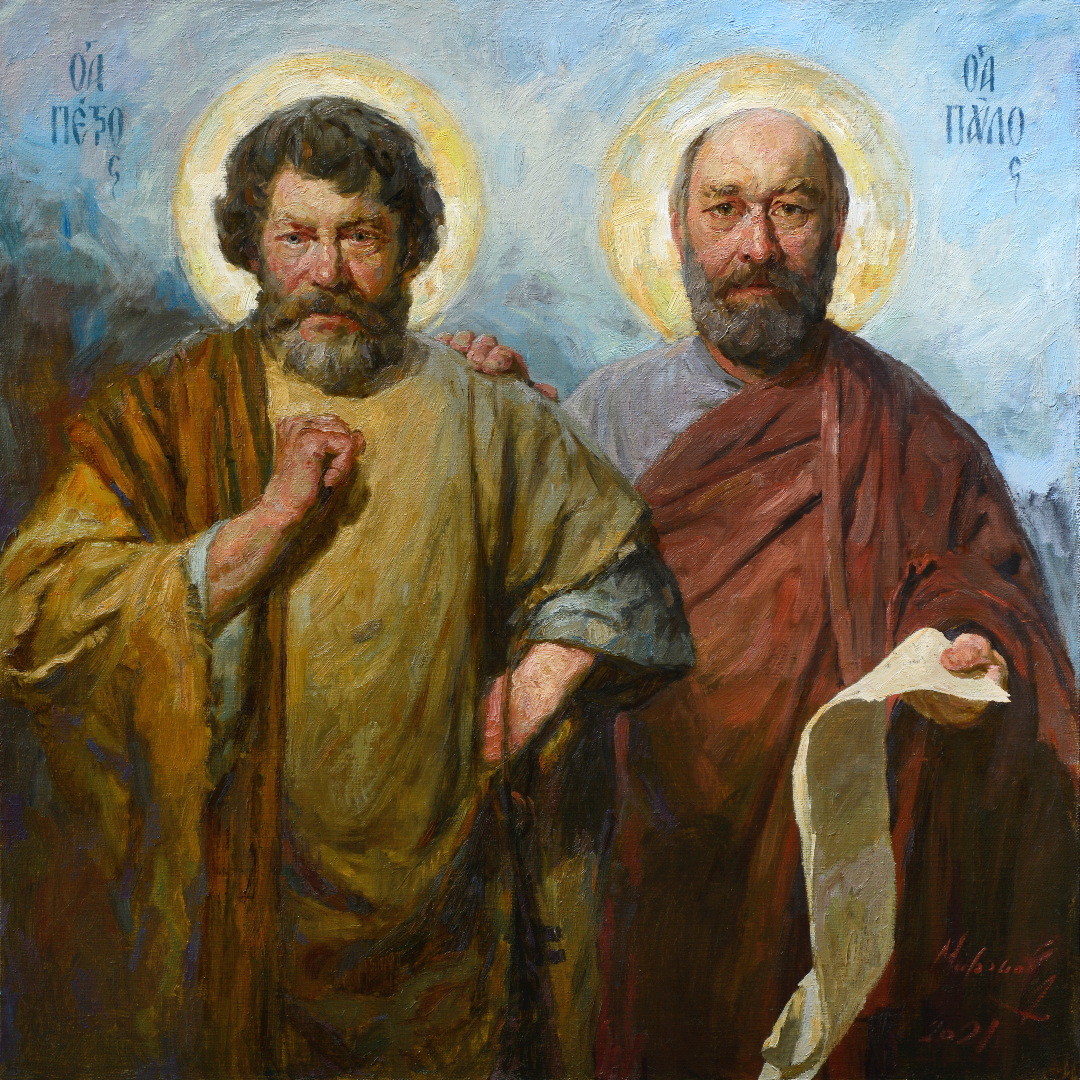
Paul on the other hand, had not met Jesus during his life. In fact, Paul was notoriously violent in his persecutions of Christians. He had even presided over the death of the great martyr Saint Stephen. He was not to be converted by the powerful preaching of the Apostles. Stories of miracles would not affect this zealous student of the law. This man Jesus had claimed to be God. He was a blasphemer in Paul’s eyes. An imposter who had died a horrible death. How could he be the Messiah?
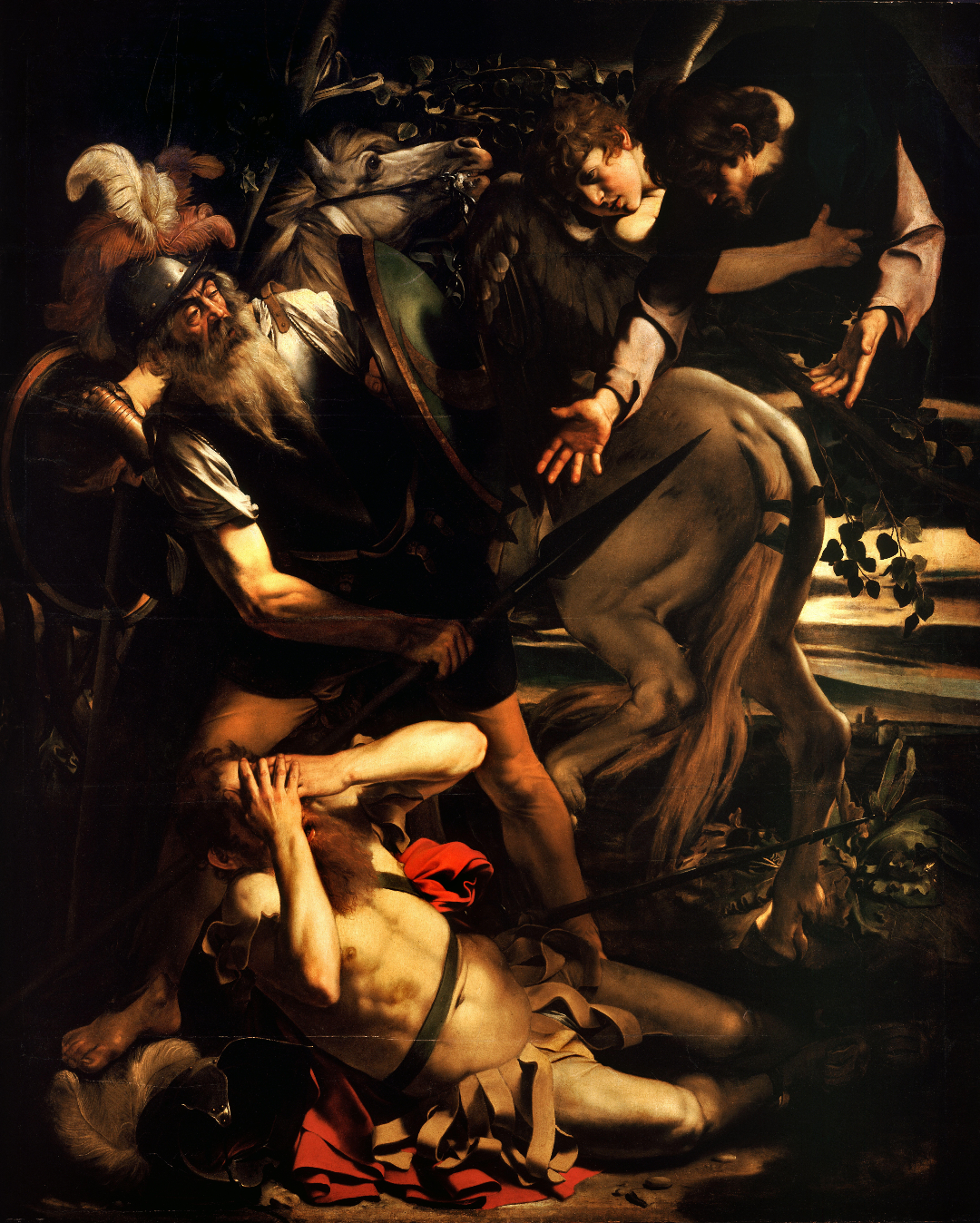
Jesus had to knock him off his horse, speak to him in an audible voice, ask why he was persecuting him and then leave him blind for three days. That got Paul’s attention. There was no denying the voice of Jesus claiming that Paul was persecuting Jesus himself. Scott Hahn says that Paul is often described as the most thoroughly converted man in history. And all that vehemence that Saul had directed toward persecuting Jesus was then converted, refocused on proclaiming the truth of Jesus’ lordship.
I can imagine the Lord choosing Paul because of his steely will, his determination, drive, and willingness to endure. But Paul required a very powerful, unmistakable call. He certainly got that call and immediately responded. Paul, after Jesus identifies himself, asks what all who seek God’s will should ask, “What shall I do, sir?” He was then given his instructions.
What can we learn from these two greatest saints of the early Church? God always chooses whomever He wills to choose. Sometimes the reasons may not be obvious. Of course, He can use whoever He wants to use and that includes those who have grievously sinned. By the power of the Holy Spirit, the Lord can transform anyone into a person who can follow His direction, so long as that person desires God’s will and is docile to the Spirit.
Oh Lord, may I always be true to you and to my promises to you. If necessary, please knock me off my horse, Lord, that I may recognize your voice and do your will.
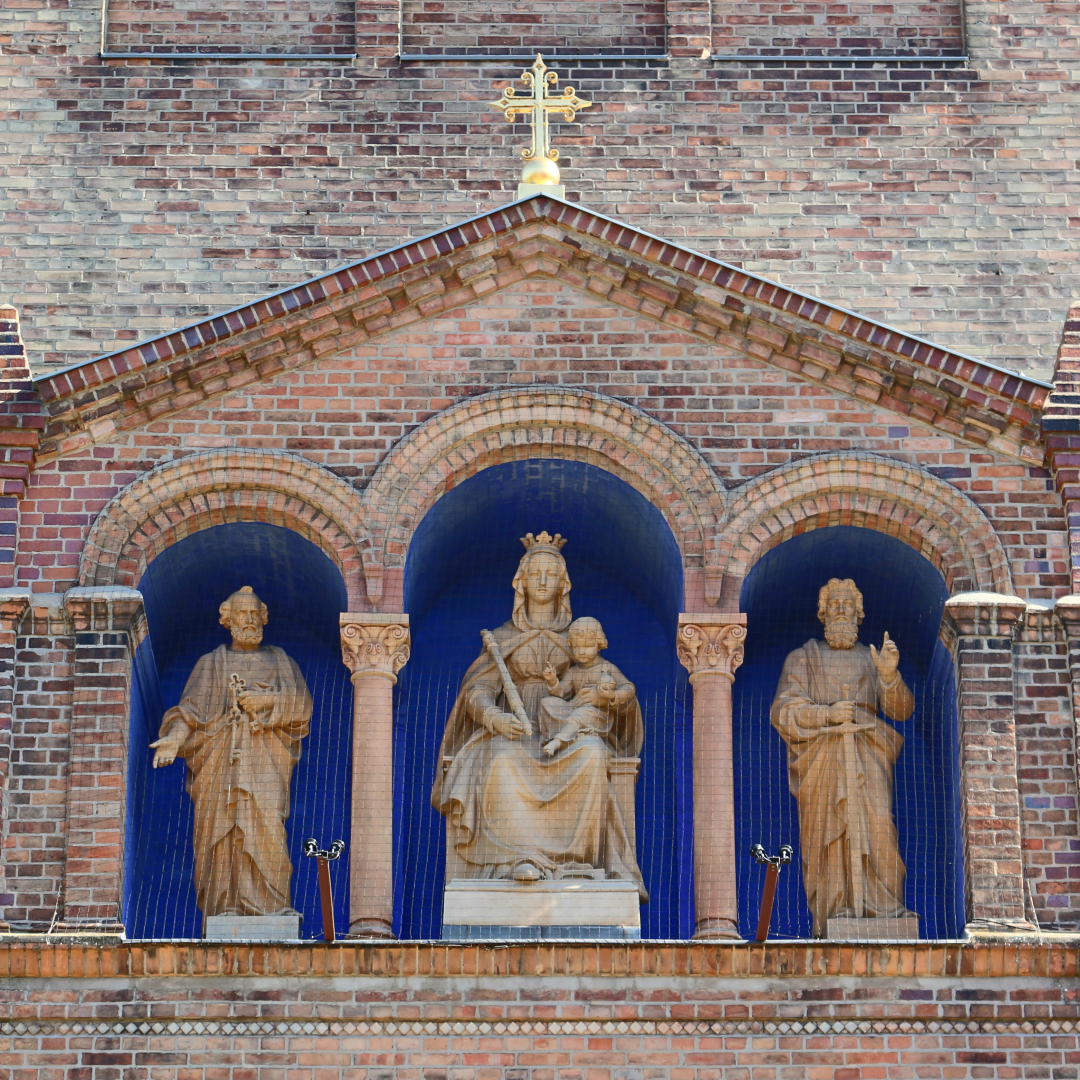
Copyright 2022 Rosemary Bogdan
Images: Angel Miklashevsky, CC BY-SA 4.0, via Wikimedia Commons; Saint Peter (anonymous artist, c. 1616-18), via National Galleries of Art, Public Domain; Andrei Mironov (painter), CC BY-SA 4.0, via Wikimedia Commons; Caravaggio, Public domain, via Wikimedia Commons
About the Author
Rosemary Bogdan
Rosemary Bogdan is a wife, mother of six adult children, and a grandmother. She homeschooled her children when they were young and currently substitute teaches at her favorite Catholic school. When not spending time with her family, Rosemary writes at A Catholic Mother's Thoughts and Catholic365.com.


.png?width=1806&height=731&name=CatholicMom_hcfm_logo1_pos_871c_2728c%20(002).png)
Comments